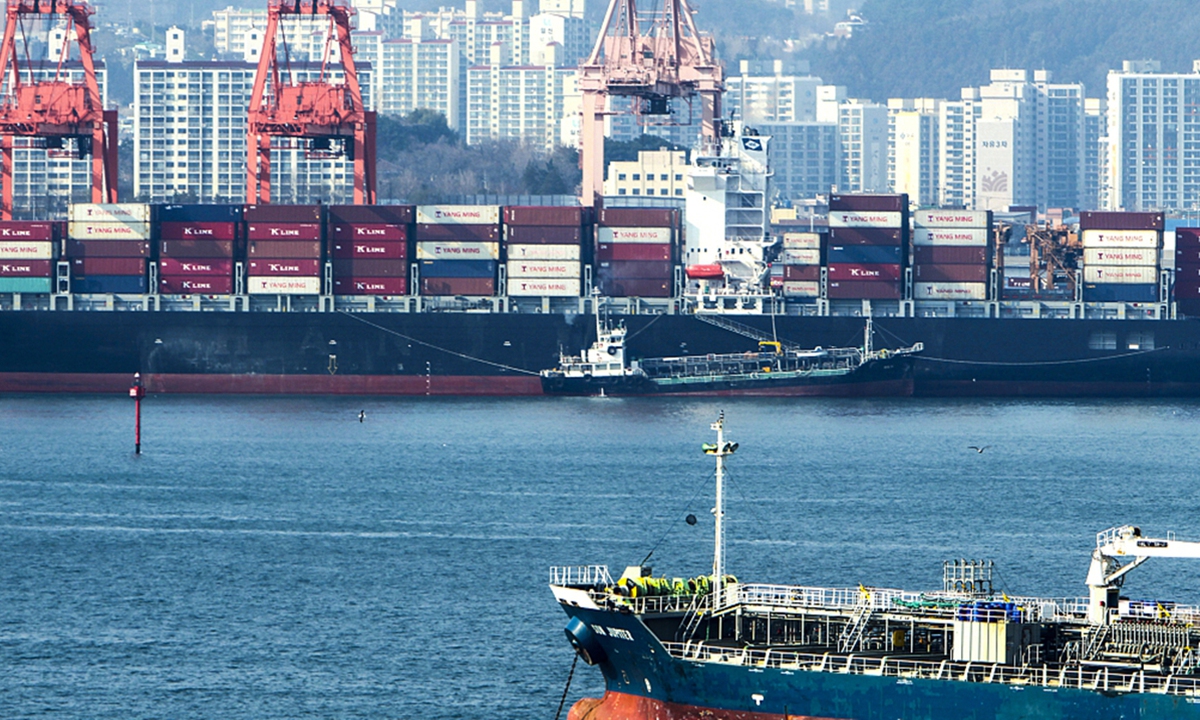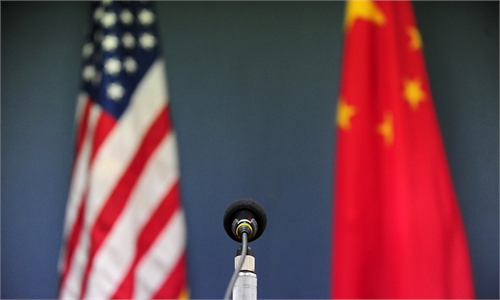China’s May trade data shows economy votes with its feet for geopolitics: Global Times editorial

Photo:VCG
Data released by the General Administration of China (GAC) on Monday showed that the country's exports grew 27.9 percent year-on-year, while imports climbed by 51.1 percent in dollar terms in May. Exports and imports increased by 23.4 percent and 26.4 percent compared with the same period of 2019.Export growth, though slower than in the first few months of the year, remains high. The surge in imports reflects strong domestic demand, especially for raw materials, as China's economy recovers in good shape.
The global economy is recovering and China is moving faster. This is the world story told by China's trade boom. In addition, countries around the world need each other. The laws of economics are also stronger than the will of some politicians in the US and other countries who advocate "decoupling." This is just like a Chinese saying that "circumstances triumph any person," which is also strongly demonstrated in the GAC data.
China's exports to the US increased by 38.9 percent from January to May, which is higher than the average increase in China's foreign exports. In addition, trade between China and India increased by 70 percent from January to May. Both China-US and China-India relations have fluctuated greatly over the past two years, but trade has grown substantially against the trend. This is a clear example that the economy has voted with its feet for geopolitics.
Facts have proven that China's economy is very resilient, and China's manufacturing industry has a particularly strong systematic advantage. It can never be suppressed by increasing tariffs or through "decoupling" of a few high tech projects. Hyping hatred and nationalism against China will also be in vain. China's economy has become a magnetic field, and many man-made obstacles cannot stop the magnetic lines of force formed around it.
Since the outbreak of the COVID-19 pandemic, the production capacity of commodities worldwide has been hit one after another, and China has become the most stable global production center. This has increased the global market's trust in Chinese partners. Since China has become the largest trading partner of more than 120 countries and regions, it has greatly increased China's room for maneuvering against non-market fluctuations. The stability of China, as an international trade center, has been continuously consolidated among these factors.
It is worth mentioning that China has vowed to deepen its reform to create a new development pattern featuring "dual circulation," in which domestic and foreign markets reinforce each other, with the domestic market as the mainstay. And the continuous expansion of the domestic market has become a clear trend. This will provide a strong internal impetus for China to keep increasing its foreign trade, and it will also make China's economic growth more balanced.
We noticed that senior Chinese and US trade and economic officials recently resumed full contact. Although the EU has increased its ideological friction with China, European countries have maintained their enthusiasm for expanding economic cooperation with China. Japan has urged its companies to maintain cooperation with China to prevent Japanese companies from losing business opportunities to other Western companies. These rational moves are logical.
But many questions remain in the US' direction. The Biden administration has so far refused to ease tariffs on Chinese goods imposed by his predecessor, the Trump administration, and is expanding its crackdown on Chinese high-tech companies, making businesses and consumers in both countries suffer losses. Washington is going against the trend of history by persisting in imposing geopolitical yoke on its economic and trade relations with China. Failure is the certain result.
Damaging their trade relationship with China will only give away their opportunities to others - this is the fact reflected by China's expanding foreign trade against the trend of political suppression and the impact of the COVID-19 pandemic. Expanding cooperation with China will add to their own interests. If they weaken cooperation with China for political purposes, they will not only fail to bring China down, but their loss is very likely to be heavier than that of China's. This is because China has the most comprehensive manufacturing system and most trading partners worldwide.
Friendliness is conducive to business success. This is well-known business wisdom in China. We want to send this to some of the amateur economic decision-making elites who consider too much about politics in economic and trade issues.



